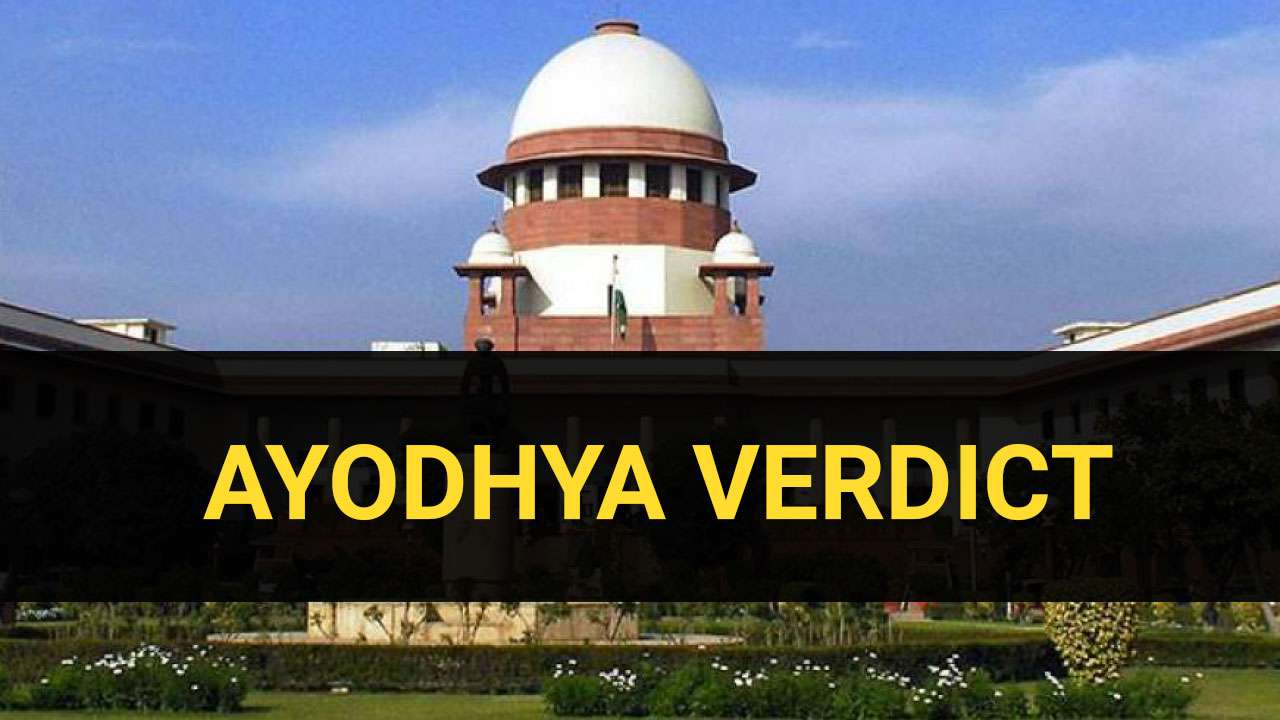[Breaking Ayodhya Judgment] Supreme Court delivers Unanimous Judgement [Read Judgment]

Land to be given to Hindus for Temple, Mosque given 3 acres of separate Space
In a unanimous verdict bringing an end to an almost 70 years dispute among Hindus and Muslims over the disputed land, the Supreme Court on Saturday held that the disputed land of 2.77 acres in Ayodhya to be handed over to Hindus for the construction of Ram Mandir. An alternate separate place of 5 acres to be allotted to the Sunni Waqf Board for construction of the mosque.
The Central Government has been directed to formulate a scheme for construction of temple within three months under a trust Board for temple construction.
The Court observed that the destruction of Babri mosque in 1992 was a violation of law. The act of placing idols beneath the central dome of the mosque in 1949 was an act of "desecration", observed the Court.
However, the Court clarified that the rights of Ram Lalla to the disputed property is subject to maintenance of law and order and communal harmony.
The verdict was read out by CJI Gogoi. The key points from verdict were.
- Suit by Nirmohi Akhara was time barred.
- ASI reports show that the Babri Masjid was not built on a vacant land. The underlying structure was not of Islamic origin though it was found ASI report was not conclusive as to whether the underlying structure was a Hindu temple.
- The faith of Hindus that the place is birthplace of Lord Ram is undisputed.
- The Ram Janmabhoomi has no juristic personality. But Ram Lalla, the deity has juristic personality.
- The Suit by Sunni Waqf Board is maintainable and not barred by limitation.
- The Sunni Waqf Board has not been able to prove adverse possession. There is evidence to show that the Hindus had been visiting the premises prior to 1857.
- There is clear evidence to show that Hindus worshiped in the outer courtyard of the disputed site. As regards the inner court yard, there is no evidence in the suit by Sunni Board to show exclusive possession prior to 1857.
- Allahabad HC was wrong in splitting the properties into three, giving each party one-third share. It was not a partition suit, observed the SC.
The Fourteen appeals were filed to the apex court against the 2010 Allahabad High Court judgment, delivered in four civil suits, that the 2.77-acre land in Ayodhya be partitioned equally among three parties - the Sunni Waqf Board, the Nirmohi Akhara and Ram Lalla, which was proved wrong in the instant case and disputed land is given for temple.